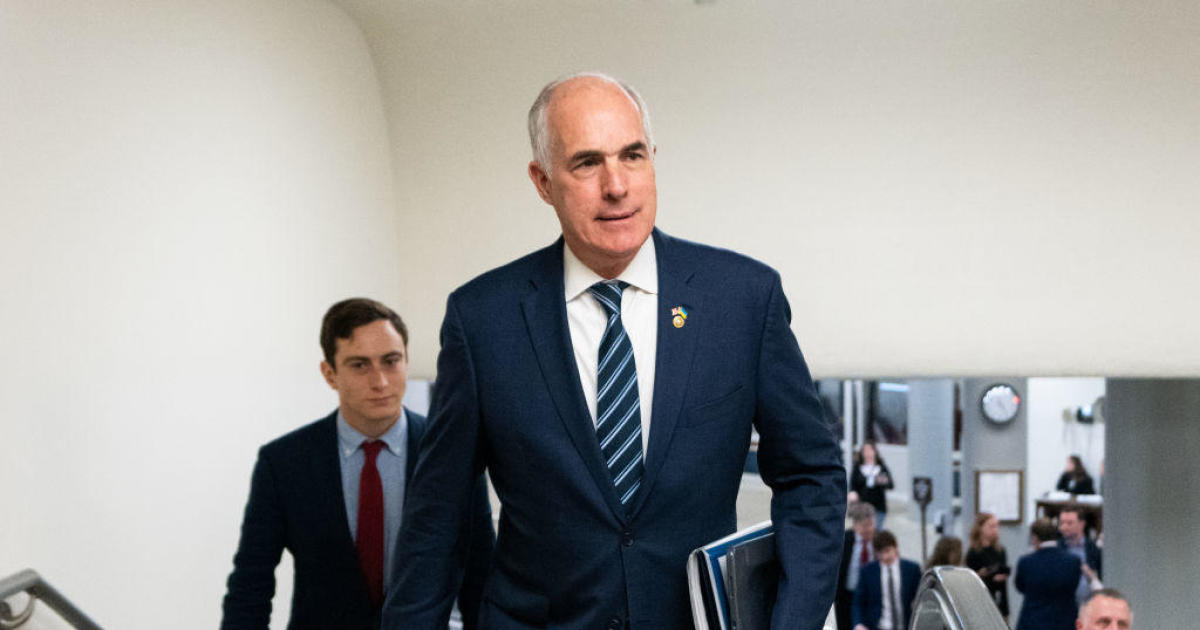
Democratic Sen. Bob Casey says of Austin's initial silence on hospitalization "there's no way it's acceptable" — "The Takeout"
CBSN
As the Pentagon inspector general launches an investigation into Defense Secretary Lloyd Austin's failure to inform the Biden White House and other top Pentagon officials about severe medical consequences stemming from prostate cancer treatment, Sen. Bob Casey, a member of the Senate Intelligence Committee, told CBS News on "The Takeout" podcast this week, "There has to be a lot more transparency."
"No one should say that this is acceptable," Casey, a Pennsylvania Democrat, said. "There's no way it's acceptable. When you're in that position, you're in a chain of command and also in succession to the presidency. There has to be a lot more transparency. That's paramount."
The Pentagon had already announced an internal review of Austin's medical situation and the failure to notify President Biden or national security adviser Jake Sullivan of a serious urinary tract infection that flared after Austin's prostate cancer surgery. Pain from the infection led Austin to be taken by ambulance to Walter Reed National Military Medical Center and placed in intensive care. Austin had the prostate procedure on Dec. 22. He participated in a conference call with Mr. Biden on New Year's Day but was hospitalized later that day. Some Pentagon officials were notified on Jan. 2. The White House was not informed until Jan. 4. Key members of Congress received only scant details through Jan. 7. The president did not learn of Austin's cancer diagnosis until Jan. 9.

Yangon — Myanmar's military leader lauded President Trump and asked him to lift sanctions, the ruling junta said Friday, after a tariff letter from the U.S. president that it has taken as Washington's first public recognition of its rule. Min Aung Hlaing endorsed Mr. Trump's false claim that the 2020 U.S. election was stolen, and thanked him for shutting down funding for U.S.-backed media outlets that have long provided independent coverage of conflict-wracked Myanmar.

After years of unsuccessful attempts to finance and build a public alarm network that would warn residents of Kerr County, Texas, about dangerous flooding, officials in the region, nicknamed "flash flood alley," were going to start developing a centralized flood monitoring system this summer to help leaders and emergency managers plan ahead.

Washington — The Senate is expected to vote next week on a request from the White House to claw back funding for international aid and public broadcasting. But the funding for rural radio and television stations — sometimes an area's sole source for emergency warnings and other news — has sparked concern among some Senate Republicans, especially after the recent devastating flash floods in Texas.





















 Run 3 Space | Play Space Running Game
Run 3 Space | Play Space Running Game Traffic Jam 3D | Online Racing Game
Traffic Jam 3D | Online Racing Game Duck Hunt | Play Old Classic Game
Duck Hunt | Play Old Classic Game








